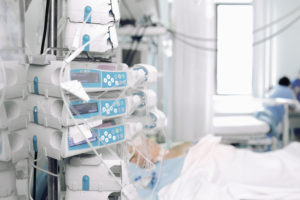Medical Device Recalls, Consent Decrees and why Risk Reduction Matters

Let’s start with Recalls…
Essentially, when a company learns there is a problem with one of their medical devices, it proposes a correction or a removal depending on where the action takes place.
- Correction – addresses a problem with a medical device in the place where it is used or sold.
- Removal – addresses a problem with a medical device by removing it from where it is used or sold.
To summarize the FDA’s definition, a recall doesn’t always mean you must stop using the device or return it to the company – sometimes it means the medical device needs to be checked, adjusted or fixed. The FDA will work with the company on their recall plan in order to ensure public safety and keep the company in compliance with FDA law.
Lastly, there are three classifications:
- Class I: a situation where there is a reasonable chance that a product will cause serious health problems or death.
- Class II: a situation where a product may cause a temporary or reversible health problem or where there is a slight chance that it will cause serious health problems or death.
- Class III: a situation where a product is not likely to cause any health problem or injury.
For any company going through a Medical Device Recall, it’s obvious this will have a negative impact on their business; if public, their stock takes an immediate hit – and they also experience damage to their reputation and the hard earned trust of their customers. It’s costly and difficult to recover.
OK – so you’re a Medical Device Manufacturer and you’ve experienced one or more Recalls – what could make things worse?
A Judge issues a Consent Decree.

So, what is a Consent Decree and how bad is it?
It’s the FDA’s way of saying they’re done talking.
A Consent Decree is an agreement between the FDA and a company that outlines steps that a company has to take in order to return to full, independent production of a (medical device) product, and bring it in alignment with the FDA’s vision of Good Manufacturing Practices (GMP’s).
In other words, it is a very strong regulatory action.
In a nutshell, the five most common triggers are – (1) when a Medical Device manufacturer experiences a product recall due to manufacturing defects, (2) inspection finds that a company is not following GMP’s, (3) a serious warning letter, or a series of less serious warning letters from the FDA about GMP’s, (4) a serious set of adverse events associated with the manufacturing process, (5) an inspection report citing deficiencies are not being addressed in a timely manner or one that the agency deems adequate.
The best advice for any company that receives a Consent Decree – is to get outside counsel. Additionally, getting your outside communications in place and working ‘with’ the FDA on a plan to resolve the problems which caused the Recalls/Consent Decree.
How can companies avoid Medical Device Recalls, Stop Ships and Consent Decrees – in the first place?
We recommend working with independent consultants (with proven FDA experience) to perform a thorough and complete evaluation of your entire process, and update your quality program accordingly – plus one more critical item.

Put together a plan to find those critical issues which could potentially cause a Medical Device Recall – because in today’s highly competitive market, ‘time to market’ is the killer.
When project teams are under strict deadlines to meet those release dates – they will sometimes cheat the process by only testing to requirements (happy path) and miss those critical defects that are lurking in the device and integrated systems code.
This is where Risk Reduction comes in.
When your entire team is working together to identify the High Risk areas in the code – then collaboratively creating negative scenarios – they can find and mitigate all the critical defects in the device and connected system, prior to release.
Without a solid Risk Reduction Plan in place, those companies on the FDA Recall List can only expect to appear there – repeatedly – until eventually they’re under a Consent Decree. Then it’s a matter of corporate survival and nobody wants to be there.



